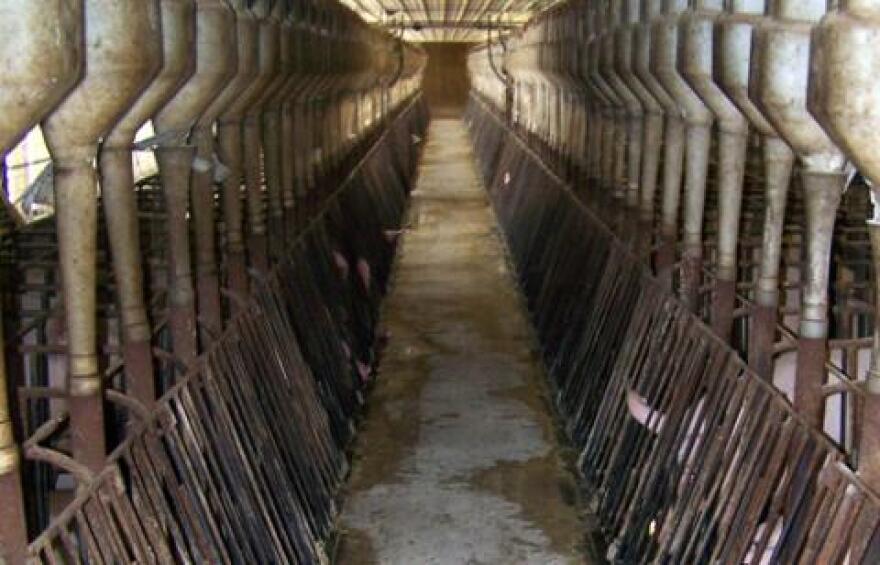Cargill, one of the country’s largest pork producers,announced Monday that it will stop using gestation crates, the controversial narrow cages meant to house and separate sows. Cargill is joining other major meatpackers, like competitors Tyson and Smithfield Foods, in planning to move away from hog crates.
Many hog farmers say it’s important to separate sows in order to ensure healthy births and that the crates are an efficient way to do that. But animal rights advocates have long opposed gestation crates, which severely restrict animal movement. The Humane Society of the United States cheered Cargill’s announcement in a press release.
The housing of pigs on conventional farms has made the leap from niche issue to consumer topic in recent years. Mainstream food companies embracing crate-free hog production sends a signal to hog producers across the country, according to David Aiken, an agricultural law specialist at the University of Nebraska Lincoln.
“I think the direction is pretty clear,” Aiken said. “If the only kind of pork they’re going to buy is cage-free, more and more producers are going to have to go that way.”
Producers are under pressure to change not only from animal welfare groups but also food companies. Dozens of companies from McDonald’s to ConAgra to Safeway are transitioning to buying pork from hogs raised without gestation crates.
“They are the ones that say ‘We want this. Our consumers want this,’” Aiken said. “’We’ve made our commitments of when we’re going to have the group housing.’”
About 80 percent of sows in the U.S. spend most of their lives in gestation crates, according to the Minneapolis Star Tribune, which recently published a lengthy report on Cargill’s hog-raising facilities.



